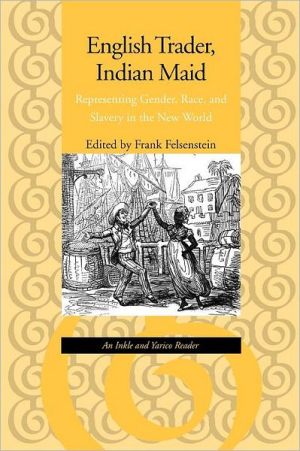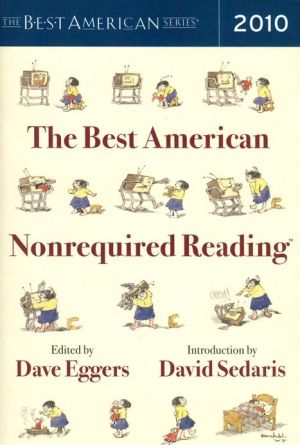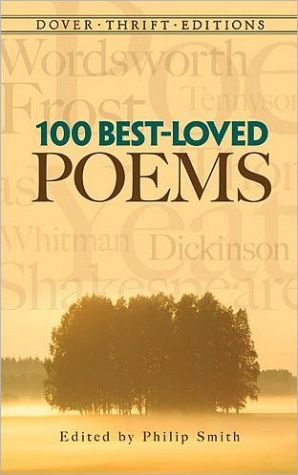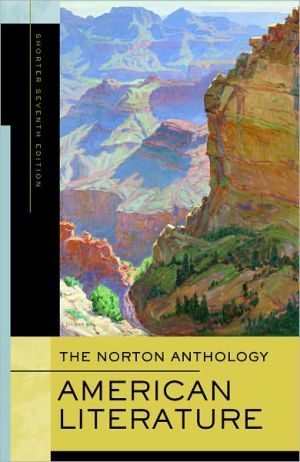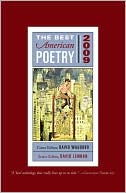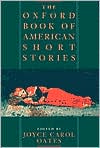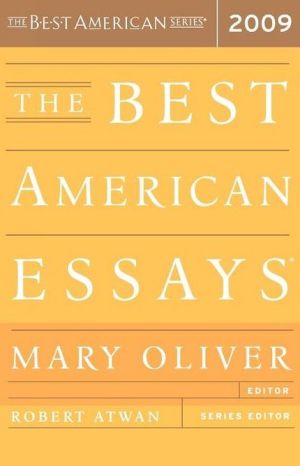English Trader, Indian Maid: Representing Gender, Race, and Slavery in the New World: An Inkle and Yarico Reader
On March 13, 1711, an article appeared in The Spectator about Thomas Inkle, a young and aspiring English trader cast ashore in the Americas, who is saved from violent death by Yarico, a beautiful Indian maiden. When he and Yarico become lovers, Inkle promises to clothe her in silks and transport her in carriages when he returns with her to England. Some months later, they are picked up after Yarico succeeds in signaling a passing English ship. But upon reaching Barbados, Inkle immediately...
Search in google:
On March 13, 1711, an article appeared in The Spectator about Thomas Inkle, a young and aspiring English trader cast ashore in the Americas, who is saved from violent death by Yarico, a beautiful Indian maiden. When he and Yarico become lovers, Inkle promises to clothe her in silks and transport her in carriages when he returns with her to England. Some months later, they are picked up after Yarico succeeds in signaling a passing English ship. But upon reaching Barbados, Inkle immediately sells Yarico into slavery — raising the price he demands when he learns that Yarico is pregnant with his child.Based on a real life account in Richard Ligon's History of Barbados published half a century earlier, the Spectator story caused a sensation as debate intensified over slavery in the British colonies — and it would be told and retold for decades as perhaps the most compelling "folk epic" of its age. In English Trader, Indian Maid, Frank Felsenstein has assembled the main English versions of this once-famous story, including a newly rediscovered poetical epistle by Charles James Fox, one of the leading parliamentary promoters of the cause of abolition. As well as George Colman the Younger's still vibrant comic opera — considered by some the earliest English social problem play — the book contains tantalizing retellings from the Caribbean and from America, where the story has close affinities with the tale of Pocahontas.Also present are notable works by English women writers, such as Frances Seymour and Anna Maria Porter, and freshly attributed English renditions by Stephen Duck, the Wiltshire "thresher poet," and by "Peter Pindar" (John Wolcot).Felsenstein also suggests an intriguing link with William Wordsworth, who may have had the story in mind while composing his Lyrical Ballads. This edition restores the story of Inkle and Yarico to its rightful place as a focal narrative in cultural and historical debate of issues of gender, race, and colonialism."In Inkle and Yarico we have that rare entity, a perfect example of an intertextual discourse that reflects so much of the diversity and contradictions of the age that fostered it... Its diverse handling of issues of gender and race makes it a lively and highly topical discussion piece in the classroom. Equally, given the regrettable (and actually surprising) shortfall of prominent eighteenth-century literary texts that treat of the subject of slavery, Inkle and Yarico fills a highly significant gap." — from the Introduction [p.43]BooknewsCompiles 22 English-language versions of the tale told in the comic opera first performed in London in 1787, a tale of romance between a beautiful native woman and an emotionally wayward European merchant. They include short stories, poems, ballads, and plays along with selections from longer works and are divided between British, American, and Caribbean versions. Annotation c. Book News, Inc., Portland, OR (booknews.com)
List of IllustrationsPreface and AcknowledgmentsA Note on TextsIntroduction1English Versions and Some Translations1A True and Exact History of the Island of Barbadoes552The Spectator, no. 11813A"The Story of Inkle and Yarico, Taken out of the Eleventh Spectator"893B"An Epistle from Yarico to Inkle, after He Had Sold Her for a Slave"954"Yarico to Inkle: An Epistle"995"The Story of Inkle and Yarico, from the Eleventh Spectator"1016Yarico to Inkle: An Epistle1087Avaro and Amanda: A Poem in Four Canto's, Taken from "The Spectator," Vol. I, No. XI1258"Yarico's Epistle to Inkle: A Poem, Occasioned by Reading Spectator, Vol. I, No. 11"1419"Continuation of the Story of Inkle and Yarico"14810Yarico to Inkle: An Epistle15311A"Epistle from Yarico to Inkle"16311B"Yarico to Inkle"16512Inkle and Yarico: An Opera, in Three Acts16713The American Heroine: A Pantomime in Three Acts23414"Yarico to Inkle"24715"Epistle from Yarico to Inkle"252American Versions16"Yarico to Inkle"25917"Yarico's Lament"265Caribbean Versions18Barbadoes26919Inkle and Yarico, a Legend of Barbados27720"The Lament of Yarico"285App. A"The Ephesian Matron"289App. BTravels and Voyages into Africa, Asia, America, the East and West-Indies293App. C"The Mad Mother"297Chronology301Bibliography307Index315
\ Slavery and AbolitionFelsenstein's extensive introduction and notes provide a detailed cultural context for the texts and make this volume an excellent starting point for students looking at European representations of the 'Other' in the eighteenth century.\ — John Gilmore\ \ \ \ \ \ Journal of Latin American Studies[A] valuable new collection, thoroughly researched and impeccably presented.\ — Peter Hulme\ \ \ \ Journal of Latin American Studies[A] valuable new collection, thoroughly researched and impeccably presented.\ — Peter Hulme\ \ \ \ \ \ Slavery and AbolitionFelsenstein's extensive introduction and notes provide a detailed cultural context for the texts and make this volume an excellent starting point for students looking at European representations of the 'Other' in the eighteenth century.\ — John Gilmore\ \ \ \ \ \ BooknewsCompiles 22 English-language versions of the tale told in the comic opera first performed in London in 1787, a tale of romance between a beautiful native woman and an emotionally wayward European merchant. They include short stories, poems, ballads, and plays along with selections from longer works and are divided between British, American, and Caribbean versions. Annotation c. Book News, Inc., Portland, OR (booknews.com)\ \
